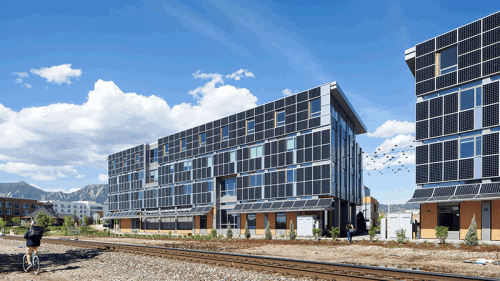In a follow-up to Promoting Housing Affordability, a report released earlier this year, ULI Europe held a webinar to look further into the report’s recommendations and how the COVID-19 crisis will affect the delivery of affordable and intermediate housing.
The event was hosted by Xavier Jongen, managing director of Catella Residential Investment Management, and after a brief introduction to the report by Margarethe Theseira, an independent adviser, panelists discussed the challenges to building intermediate housing and what best practice looks like.
Listen to the webinar in full on Knowledge Finder.
One of the key themes, raised by Marcus Cieleback, chief economist at Patrizia AG, an investment manager, is the role that governments will play in the future of housing once the coronavirus crisis is over.
The negative economic impact of lockdown measures means that demand for affordable housing is expected to skyrocket post-crisis as incomes take a hit and people are left without employment. As a result, the state will likely play a larger role in housing delivery.
However, both Cieleback and Nicolas Bearelle, CEO at Revive, a B Corporation developer based in Belgium, warned that too much state intervention in the housing market could discourage private investment. Instead, both argued that we should develop public/private partnerships to deliver housing that meets a range of needs and requirements.
Claire Flurin, research and development and innovation director at Keys AM, an asset manager based in France, believes that space requirements need to be rethought to address affordability. According to Flurin, the existing housing stock is outdated and unsuitable for today’s more modern needs, with one- and two-person households growing in number, more people renting, and working from home becoming more common. It will now be key to provide homes with more flexible space and a focus around community.
Flurin argued that the current crisis will create a greater need for an all-around, high-quality experience beyond our private space—and that is where alternative residential options will come in. These types of assets, such as co-living, will provide resilient communities in the case of future pandemics by allowing residents to isolate themselves with groups of people they trust.
Ultimately, the COVID-19 crisis has highlighted the need for a functional housing market and its stakeholders to be flexible to change, and that includes affordable or intermediate housing. Public and private bodies need to work together to offer up new solutions and start meeting this demand.
Listen to the webinar in full on Knowledge Finder, and don’t miss other upcoming webinars from ULI Europe.
SORREL POMPERT ROBERTSON is a member of ULI U.K. working at Blackstock PR.


